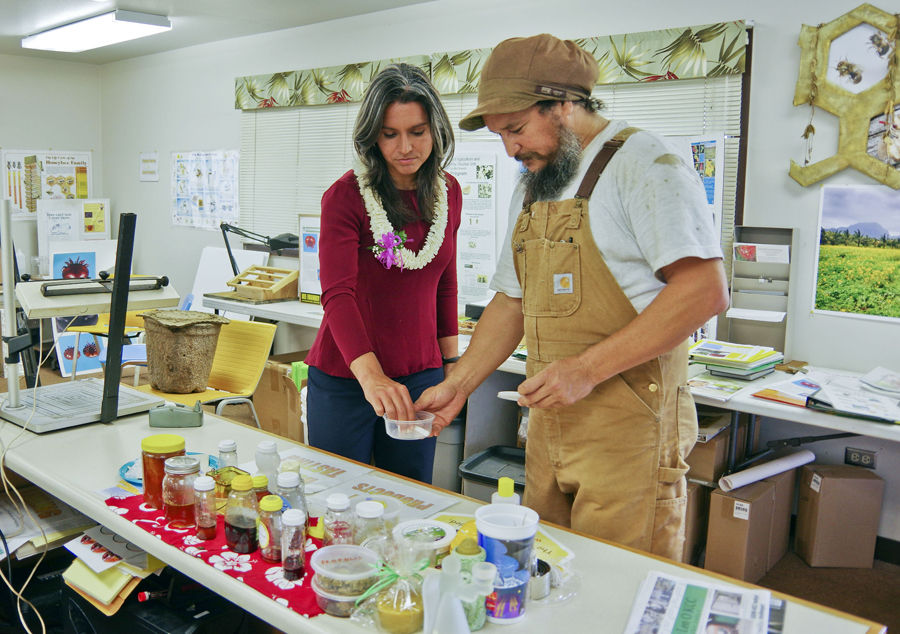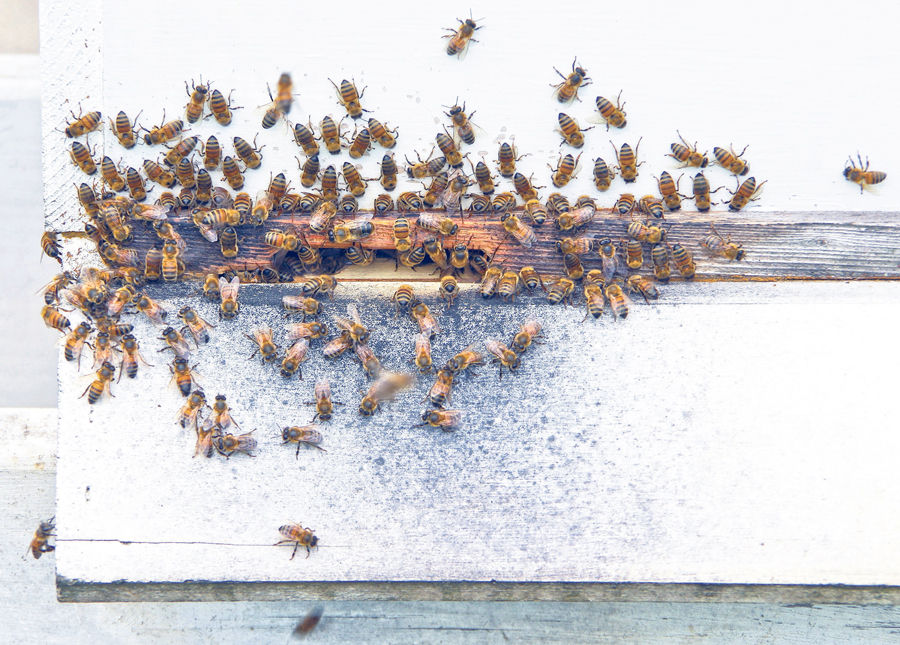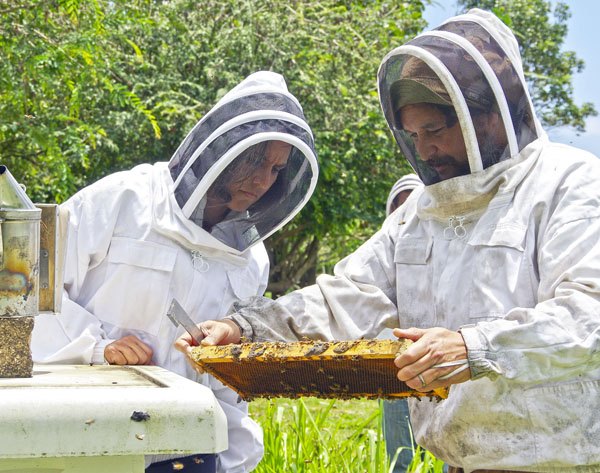LIHUE — Bees have buzzed their way into the budget. The Kauai County Council voted unanimously Wednesday to fund a measure to protect the island’s black and yellow pollinators. The resolution, introduced by Council Chair Jay Furfaro, tasks the county
LIHUE — Bees have buzzed their way into the budget.
The Kauai County Council voted unanimously Wednesday to fund a measure to protect the island’s black and yellow pollinators.
The resolution, introduced by Council Chair Jay Furfaro, tasks the county Office of Economic Development with establishing an annual $12,000 grant so that local beekeepers can test bee pollen for the presence of pesticides and other threats, including the varroa mite and small hive beetle.
“The council’s effort to provide funding to test bees for pesticides and other threats will help move forward this growing concern in our community and hopefully bring to light the issues Kauai may or may not be facing before it becomes a larger problem,” Furfaro said.
During Tuesday’s budget decision-making meeting, the council made a number of large cuts to the overall county budget. However, it set aside additional funding for several agricultural initiatives, including the $12,000 for a “Bee Pollen Testing Grant” within OED’s operating budget.
If the budget is approved by the council and signed by Mayor Bernard Carvalho Jr., the funding would be available beginning July 1 for OED to administer grants, according to Legislative Assistant Yvette Sahut.
Furfaro said the issue was brought to his attention during a recent visit to the Big Island, where he met with former Hawaii Department of Agriculture Chairperson Russell Kokubun and staff members of the department’s Apiary Program.
“The primary purpose for this resolution is to help Kauai’s bees remain healthy pollinators and prevent the spread of bee pests between our islands, especially the varroa mite, which is a great threat to our bee population, and has not yet been found on Kauai,” he said.
James Trujillo, president of the Kauai Beekeepers Association, called the measure a step in the right direction.
“We need to do all that we can to protect them, so that we have pollinators for food production,” he told the council.
The annual grant will be given to an eligible nonprofit organization to fund up to 27 distributions — $400 each — to individual beekeepers registered with the state. The remaining $1,200 will be used to fund travel for state Department of Agriculture’s Apiary Program personnel “to make additional visits to Kauai to meet with Kauai beekeepers,” according to the resolution.
Testing will be conducted by the USDA Market Services laboratory in Gastonia, N.C. and the results provided to the county, the Apiary Program, the nonprofit grant recipient and the registered beekeepers, according to the resolution.
OED Director George Costa expressed his support for the program.
“We feel it’s important to assist our beekeepers in any way we can,” he wrote in an email.
Trujillo said one major worry is neonicotinoids — a class of insecticides that affects the central nervous system of insects, causing paralysis and death, according to the Environmental Protection Agency.
“We as beekeepers are concerned about what’s out there. What are the kinds of harmful pesticides being used?” he said. “Beekeepers have the right to know.”
Another fear is the small hive beetle, which first showed up on Kauai in May of 2012.
In June, KBA sent a petition signed by more than 600 people to local legislators asking them to “enact rules and regulations to monitor and restrict the use of pesticides and herbicides.”
• Chris D’Angelo, environment writer, can be reached at 245-0441 or cdangelo@thegardenisland.com.




